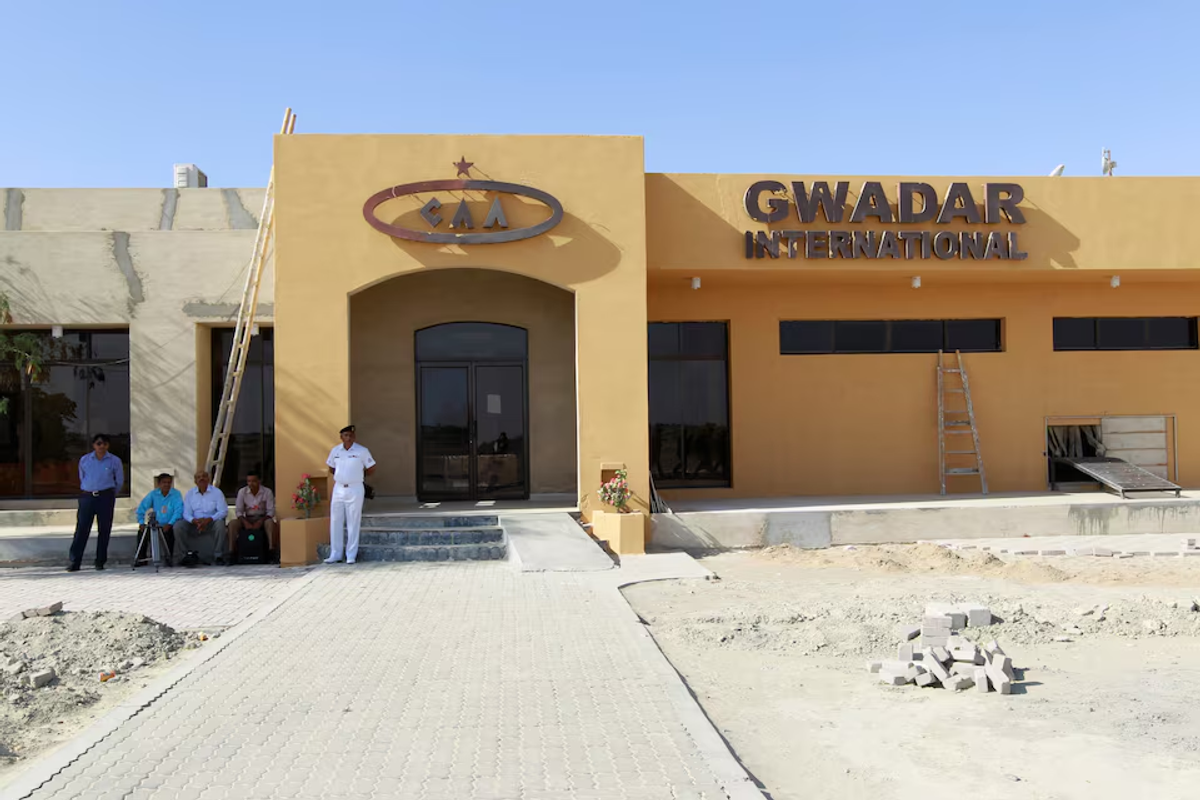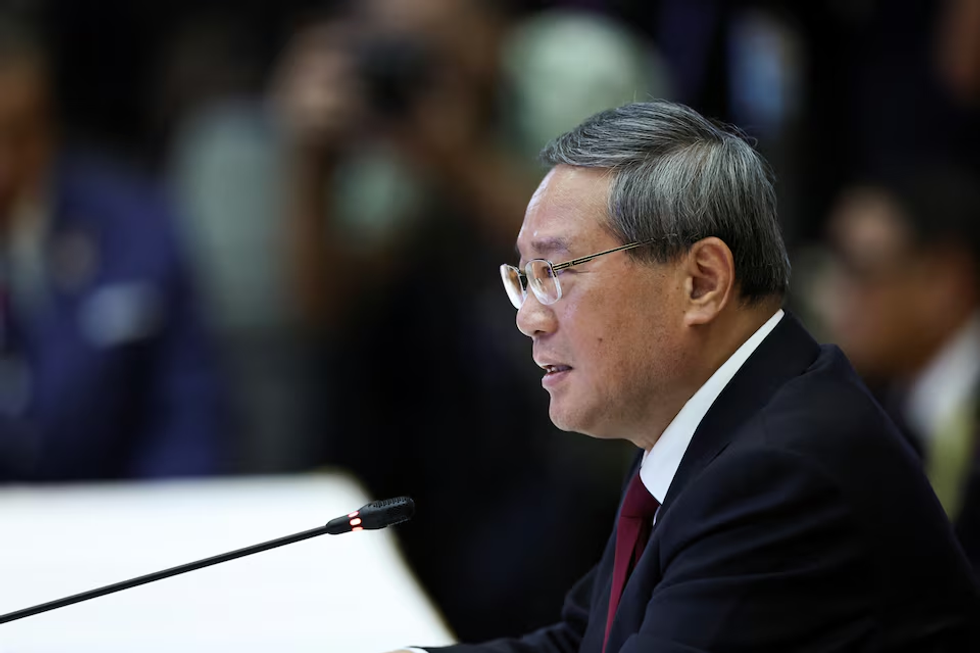Reuters
News Agency Partner
Reuters is a leading source of news and information, delivering fact-based reporting and expert analysis on international events and trends.
News Desk
The News Desk provides timely and factual coverage of national and international events, with an emphasis on accuracy and clarity.

A view of the terminal building at the international airport in Gwadar, Pakistan November 13, 2016. Picture taken November 13, 2016.
Reuters
Li Qiang to visit Pakistan Oct. 14-17 for SCO meeting and possible airport inauguration
Attacks by militants prompted security review, postponing initial opening plans
Chinese premier Li Qiang could inaugurate operations at a Chinese-funded airport at Gwadar, a coastal city in Pakistan's Balochistan province, during his visit to the country in the coming week, information minister Attaullah Tarar told reporters on Sunday.
The start of operations at the $200-million Gwadar International Airport has been pushed back for a security review after deadly attacks by separatist militants in August in the area, government and aviation sources said.
Li, along with ministers and government officials will visit Pakistan from October, 14 to 17, Pakistan's foreign affairs ministry said on Sunday.

Pakistan is hosting the meeting of the Shanghai Cooperation Organization (SCO), which comprises nine full members, including China, India, Iran and Russia, and is scheduled for October, 15 and 16 in Islamabad.
The new airport will handle domestic and international flights, according to Pakistan's Civil Aviation Authority, and will be one of the country's biggest airports.
The initial plan was for Prime Minister Shehbaz Sharif to inaugurate the airport on Aug. 14 alongside Chinese officials, but that was called off after an ethnic Baloch rights group started a sit-in protest, the officials said.
A decades-long insurgency in Balochistan by militant groups has led to frequent attacks against the government, army and Chinese interests in the region.

Two Chinese nationals were killed in an explosion near the international airport of Karachi last week, the Chinese embassy in Pakistan said.
China said on Thursday it would work with Pakistan to protect the safety and security of Chinese personnel, projects and institutions in Pakistan.
Mao Ning, a Chinese foreign ministry spokesperson, said she was not aware of reports that Pakistani authorities are seeking to curb the movements of Chinese citizens during the Shanghai Cooperation Organisation (SCO) conference next week because of a security risk from militant groups targeting them.
Monumental failure
Speaking to Nukta, Senator Mushahid Hussain, who formerly headed the Senate's foreign and defense committees, said that the recent attack on Chinese nationals in Pakistan, who were part of an official delegation, is a monumental failure of Pakistan’s security system, which has repeatedly and abysmally failed to fulfill its promise of providing “foolproof security” to Chinese citizens in the country.
In the past five years, he said, seven attacks have claimed the lives of 19 Chinese and 13 Pakistanis. “This attack was particularly significant due to its timing and location: just before the impending visit of the Chinese Prime Minister to Pakistan, and not in the borderlands of Balochistan or Khyber Pakhtunkhwa, but in the heart of urban Pakistan, near Karachi airport,” he added.
“It was clearly a serious breach of security, as the terrorists had precise intelligence on when the Chinese guests were arriving, their exact route, and their destination.”
Mushahid said that the incident has shaken Chinese confidence in the Pakistani system, which has neither the credibility nor the demonstrated capability to protect Chinese citizens.
“An extraordinary, out-of-the-box mechanism will need to be established to ensure the continued flow of Chinese investment, including a joint Pakistani-Chinese intelligence and counterterrorism partnership, as the current Pakistani system has failed to deliver,” he concluded.
‘Do more’
An opinion piece published in China Daily said: "The Sunday attack should prompt them (Pakistan) to do more to improve the security situation in the country.”
It recalled that the latest attack took place after Foreign Minister Ishaq Dar’s pledge to “hunt down the perpetrators of the March attack and bring them to justice, and better protect Chinese nationals, projects and institutions in Pakistan.”
Five Chinese nationals and their local driver were killed in the suicide attack in late March. The attack occurred on the main highway linking Pakistan to China.
CPEC threatened
However, the unusually strong tone of China Daily reflects growing concern that Pakistan’s current measures are insufficient. The opinion piece published in the daily declared that “Pakistan's counterterrorism measures have not been able to prevent terrorist attacks, with terrorist outfits continuing to threaten the projects of the China-Pakistan Economic Corridor!”
The China Pakistan Economic Corridor is part of Beijing's multi-billion-dollar ambitious Belt and Road Initiative which aims to connect Asia with Africa and Europe via land and sea routes.
Chinese media is state-owned and reflects the policy of the state.










Comments
See what people are discussing